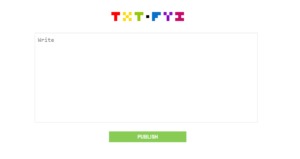
Tired of social media? Or, more specifically, tired of the “likes” and “shares” and the incessant need to cater to everyone and everything whenever something is posted online?
Social media is meant to be shared. You know, the whole social thing. The whole point, really, is connection. Our biggest social media platforms have sharing built right into their design; if you publish something, it’s not really up to you what happens to it next.
This has created a culture of extremes: Either the content has been watered down so as to be palatable to everyone, losing its individuality to get more exposure, or amped up so as to push buttons and offend everyone.
And with the rise of hate groups and waves of white supremacy, a general culture of harassment (especially through platforms like Twitter), and whatever the hell you call what goes on in the boards of 4chan, the time for a little social media psychoanalysis seems (over)due.
Has sharing and the rapid spread of viral content, etc. gotten out of control?
Maybe.
As described by Wired in This stripped-down blogging tool exemplifies antisocial media, 11/24:
When you think about it, the very metaphor of “going viral” suggests bleak side effects. In the physical world, it means an infectious payload spreading uncontrollably. Smallpox, Ebola, avian flu: super viral content, dude! Reframe “virality” like that and you start to understand the emergence of white supremacy online or the hot-zone dog-piling of Gamergate.
Some social media companies, however, have come to realize this:
Facebook, for example, as we discussed last week (it’s here if you missed it: Big changes on the way for your Facebook News Feed) is moving to promote interpersonal communication ahead of business/corporate sponsorship; return to connecting people rather than veritable content vomit on its News Feed.

But it has created connections, as originally intended, and the ability to mobilize/bring people together in ways we could never have imagined. Perhaps too well. And this is the point.
A response is necessary. Or at least an alternative. Right?
Enter txt.fyi. It’s bare. Really. There’s really nothing to it:
You transfer your thoughts onto the screen and publish, with no buttons even available to share the content elsewhere, no way to “friend” anyone else, and, perhaps best of all, no way for anyone to comment on what you’ve written. Your words are more or less self-contained on the internet.
Which seems fairly anti-internet, no?

As the platform is described in its “What is this?” section (literally the only other thing on the page):
This is the dumbest publishing platform on the web.
Write something, hit publish, and it’s live.
There’s no tracking, ad-tech, webfonts, analytics, javascript, cookies, databases, user accounts, comments, friending, likes, follower counts or other quantifiers of social capital. The only practical way for anyone to find out about a posting is if the author links to it elsewhere.
You can still play with the way your text looks, though; they’re not trying to remove the personality from what you’d like to deposit onto the world wide web, simply remove the pressures of virality. For design and customization you can “…Use basic Markdown to format posts: #header, **bold**, *italic*, `code`, >quote, and hyperlinks in the format [link] (http://example.com). Try !hacker and !professor and !timestamp too.”
Like so: txt.fyi/+/ba0c52fa/
Voilà.
Clearly you can still “share” it by hand, as also mentioned above. But that’s also the point, as it makes you consciously share/send what you’ve written to someone, instead of mindlessly clicking as the rest of the world does the same.
The platform was created by Boing Boing managing editor Rob Beschizza. Boing Boing, “A Directory of Mostly Wonderful Things” has itself been responsible for some fantastic viral content. Beschizza has created the much-needed alternative.
Because, why not both?
It is, of course, hard/impossible to monetize something built to be as inward-looking as this: There’s no room here for ad dollars or affiliated links, or any other way to make money from it. This is something that, at least from a morality standpoint, has risen above the internet (i.e. the darkest corners of the internet that far too often come out into like via social sharing, etc. etc. etc.): It exists, selflessly, solely for users to use and enjoy on their own.
txt.fyi, by design, is not going to blow up/go viral. Not going to get out of control and turn into something that trolls and those lonely basement dwellers who get their kicks out of anonymously harassing female game designers (or anyone else) can use for nefarious purposes.
It’s going to stay exactly what it is, while other digital content and social media continues to garner “likes” and “shares” and comments positive or negative, spreading across the world and the universe and beyond. That was always going to be the case: a greater endgame than what “traditional” news media, those newspaper titans like Joseph Pulitzer and William Randolph Hearst so desperate for circulation and further and further reach, could have ever dreamed would be possible.
Social media, a Facebook post, a quick Tweet, a Tumblr blog, a filtered Snapchat, simply pulled the rug out from under those monopolistic giants and gave that power to everyone/everything.
For better, or for worse.
Now, simply, we have an alternative as well.
















